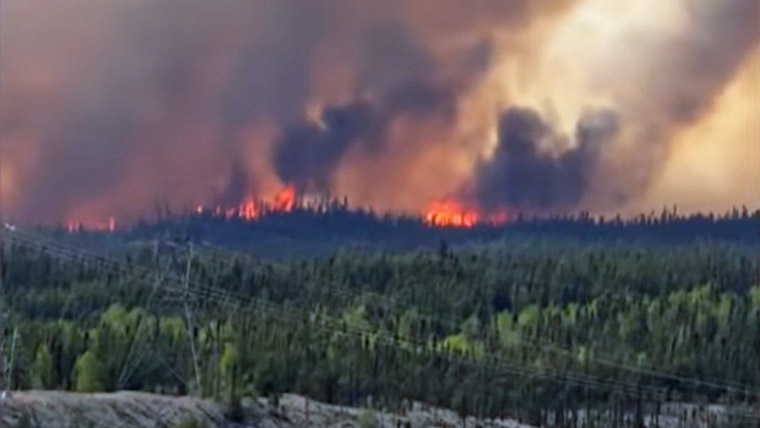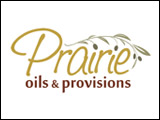The Manitoba Wildfire Service advises the wildfire situation in Leaf Rapids has escalated, with fire entering the north side of the community and causing damage to an estimated five to seven structures. Of these, only one was a residence, the rest were abandoned buildings. The Leaf Rapids community was evacuated earlier this month, with essential and emergency personnel being the only ones in the community yesterday. At that time, fire crews retreated to safety in response to the intense wildfire activity but returned within the hour. As soon as it was safe to do so, fire crews resumed firefighting activities, working through the night.
The fire risk in the majority of the province today is medium to high, with areas of higher concern in the north.
While the fire affecting Nopiming Provincial Park (Fire EA61) remains out of control, suppression efforts now allow for the reopening of Nopiming to all permanent residents, cottagers and commercial operators on Friday, July 25 at 9 a.m., as well as the reopening of Provincial Road (PR) 314 and PR 304.
While Bird Lake Campground is open, all other campgrounds in Nopiming will remain closed for the rest of the season including Beresford Lake, Black Lake and Tulabi Falls. The backcountry campsites at Shoe Lake are closed along with all water routes and hiking trails in the park.
These closures are necessary as significant wildfire cleanup is required across the park. Burn zones with scorched trees pose a safety risk and backcountry areas must be evaluated before water routes and hiking trails can safely reopen. Anyone hoping to spend time in Nopiming backcountry this season should make other plans.
The fire continues to smoulder throughout Nopiming Provincial Park. Visible flames and smoke columns will persist for the remainder of the summer and fall. This is normal and the area continues to be actively monitored by the Manitoba Wildfire Service.
Due to increased wildfire activity, the majority of Atikaki Provincial Park is closed to all park users including Aikens, Dogskin and Sasaginnigak lakes, as well as the Bloodvein and Gammon river corridors. For updates on park closures, visit www.manitobaparks.com.
Manitoba Wildfire Service has cancelled all burn permits for the Burn Permit Area, with no new burn permits issued at this time. Additionally, travel permits are required within active fire boundaries. To view active fire boundary maps, visit gov.mb.ca. To apply for a travel permit, contact a Natural Resources and Indigenous Futures district office and visit gov.mb.ca to find a location.
Manitoba remains under a provincial state of emergency, under the Emergency Measures Act due to a wildfire season that is now the worst on record in the last 30 years, with more than one million hectares (ha) of area burned in the province. The state of emergency is in effect until Aug. 8 and if necessary, may be extended.
Fires of note
The Manitoba Wildfire Service continues to respond to 124 active wildfires across the province, a total of 333 wildfires to date, well above the average for this date of 252 total fires.
East region:
- Fire EA061 remains out of control at approximately 305,765 ha. A closure and mandatory evacuation order is in place for most of Atikaki Provincial Park, and the entire areas of Wallace Lake and South Atikaki provincial parks. While access to Nopiming Provincial Park is reopening, the fire continues to smoulder throughout the park.
West region:
- Fire WE017, located near Sherridon and the city of Flin Flon, is approximately 347,100 ha and is out of control. For the safety of personnel, boaters are asked to avoid waterways being utilized by Manitoba Wildfire Service tankers and aircraft.
- Fire WE025, located near Mathias Colomb Cree Nation (Pukatawagan), is approximately 62,075 ha and is being monitored. The fire is contained around Mathias Colomb Cree Nation (Pukatawagan) but a mandatory evacuation order continues.
- Fire WE028, located 10 kilometres (km) from Bakers Narrows Provincial Park, is approximately 7,190 ha and is out of control.
- Fire WE052, located 10 km from Snow Lake, is approximately 21,790 ha and is out of control. A mandatory evacuation order is in place for the town of Snow Lake. Wekusko Falls Provincial Park closure will remain in place until August and a mandatory evacuation order continues for park users. Chisel Lake mine and Lalor mine have evacuated remaining personnel.
- Fire WE053, located 13 km from Snow Lake, is approximately 8,745 ha and is out of control.
North region:
- Fire NO002, located near the town of Lynn Lake, is approximately 84,270 ha and is out of control.
- Fire NO042, located 12 km southwest from the town of Lynn Lake, is approximately 14,450 ha and is out of control. A mandatory evacuation order is in place for the town of Lynn Lake and Marcel Columb First Nation.
- Fire NO005, located near Pimicikamak Cree Nation (Cross Lake), the Incorporated Community of Cross Lake, Jenpeg Generating Station and Whiskey Jack Landing, is approximately 149,560 ha and is out of control.
- Fire NO010, located near Tataskweyak Cree Nation (Split Lake), is approximately 25,225 ha and is out of control. A mandatory evacuation order remains in place for Tataskweyak Cree Nation (Split Lake).
- Fire NO026, located four km from the town of Leaf Rapids, is approximately 9,160 ha and is out of control. A mandatory evacuation order is in place for the town of Leaf Rapids.
- Fire NO047, located 25 km from the town of Leaf Rapids, is approximately 15,525 ha and is out of control. A mandatory evacuation remains in place for the town of Leaf Rapids.
- Fire NO061, located 14 km from the city of Thompson, is approximately 16,370 ha and is out of control.
- Fire NO079 located near Kistiganwacheeng (Garden Hill Anisininew Nation), is approximately 2,865 ha and is out of control. A mandatory evacuation remains in place for Kistiganwacheeng (Garden Hill Anisininew Nation) and Island Lake (Stevenson Island).
- Fire NO113 has entered the north side of the community of Leaf Rapids, which is approximately 2,500 ha and is out of control.
To report a wildfire, call 911 or the TIP line toll-free at 1-800-782-0076.





